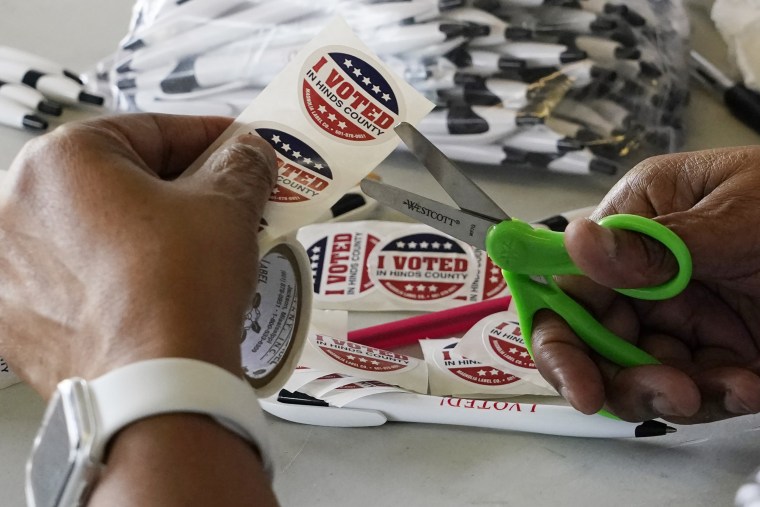WASHINGTON — The Supreme Court on Friday rejected a challenge to a constitutional amendment adopted by the state of Mississippi during the racist Jim Crow era aimed at preventing Black people from voting.
The justices left in place a law barring certain felons from voting, which the state says is no longer tainted by the racist intentions of its original authors because it has subsequently been updated on two occasions.
The court's decision not to hear the case prompted a sharp dissenting opinion from liberal Justice Ketanji Brown Jackson, joined by fellow liberal Justice Sonia Sotomayor.
She contrasted the decision on Friday with the court's ruling a day earlier that effectively ended the consideration of race in college admissions.
If the court viewed affirmative action as race discrimination, then the Mississippi measure must be seen similarly, Jackson said.
"So at the same time that the court undertakes to slay other giants, Mississippians can only hope they will not have to wait another century for another judicial knight-errant," she wrote. "Constitutional wrongs do not right themselves."
The measure was first enacted in 1890 at a time when whites in the Deep South were fighting back against post-Civil War efforts to ensure formerly enslaved Black people had equal rights.
The specific aim of the amendment was to disproportionately prevent Black people from voting by removing voting rights from felons convicted of what were thought to be "Black crimes" and declining to do the same for "white crimes."
As such the amendment removed voting rights from people convicted of bribery, burglary, theft, arson, obtaining goods or money under false pretenses, perjury, forgery, embezzlement and bigamy. The list did not include the more serious crimes of murder and rape.
The measure, known as Section 241, was first amended in 1950 by removing burglary from the list and was changed again in 1968 when rape and murder were added. On both occasions, the proposed changes were adopted by the Legislature and ratified by voters.
Roy Harness and Kamal Karriem, two Black men whose voting rights were removed after they were convicted of forgery and embezzlement, respectively, brought the legal challenge in 2017. They say Section 241 violates the Constitution's 14th Amendment, which requires that the law applies equally to everyone, and the 15th Amendment, which prohibits the denial of the right to vote on the basis of race.
A federal judge rejected the challenge, noting that the updated amendment had previously been upheld by the New Orleans-based 5th U.S. Circuit Court of Appeals in a 1998 ruling.
On appeal, the 5th Circuit agreed to reconsider its precedent but, in a 2022 ruling, it again upheld the restrictions, saying that although the state constitutional convention that gave rise to Section 241 was "steeped in racism," the subsequent changes showed that "any taint ... has been cured."
In asking the Supreme Court to weigh in, Harness and Kariem's lawyers point to the fact that the court in 1985 struck down a similar measure that was enacted in Alabama in 1901.
The appeals court was only able to reach its conclusion by "blinding itself to the undisputed historical fact" that Mississippi voters were never given the option to either re-enact or repeal the provision in full, the lawyers said in court papers. Thousands of Black people in Mississippi remain disenfranchised as a result of an avowedly racist policy, they added.
Mississippi Attorney General Lynn Fitch, a Republican, argued in court papers that it is uncontested that the state has the power to remove voter rights. She pointed out that the 1968 changes were approved as part of a response to a federal civil rights commission calling for reforms to the state's voting laws.
Fitch also cited data showing that white felons are just as likely to be disenfranchised as Black felons.

